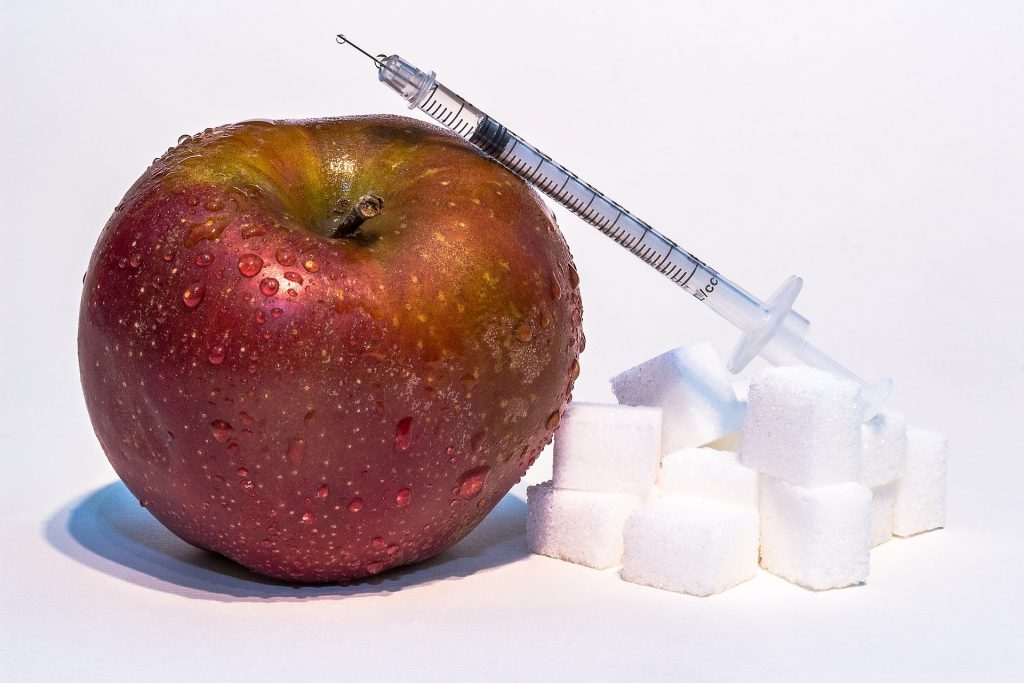 Fructose is known to cause detrimental effects to mammals when consumed in excess. In particular, consumption of high amounts of fructose causes the development of insulin resistance. The development of insulin resistance is highly damaging to health because insulin is a hormone that controls to a large part all energy storage. A dysfunction in the insulin system therefore causes serious widespread aberrations to the main energy storage pathways, and this is a primary driver of weight gain and obesity. Consuming fructose in its refined crystalline form is highly damaging, as it facilitates the absorption of large amounts of fructose and this greatly accelerates the development of insulin resistance. However, exercise might be protective of the damaging effects of fructose, because it has an insulin sensitising effect. In this way exercise counters the negative effects of fructose in skeletal muscle. However, exercise might also have other effects that are able to prevent fructose causing the development of insulin resistance.
Fructose is known to cause detrimental effects to mammals when consumed in excess. In particular, consumption of high amounts of fructose causes the development of insulin resistance. The development of insulin resistance is highly damaging to health because insulin is a hormone that controls to a large part all energy storage. A dysfunction in the insulin system therefore causes serious widespread aberrations to the main energy storage pathways, and this is a primary driver of weight gain and obesity. Consuming fructose in its refined crystalline form is highly damaging, as it facilitates the absorption of large amounts of fructose and this greatly accelerates the development of insulin resistance. However, exercise might be protective of the damaging effects of fructose, because it has an insulin sensitising effect. In this way exercise counters the negative effects of fructose in skeletal muscle. However, exercise might also have other effects that are able to prevent fructose causing the development of insulin resistance.

Fructose consumption can be detrimental to the health if consumed in excess. For example, soft drinks and fruit juice contain high amounts of dissolved fructose that can easily lead to overconsumption. Exercise may negate some of the deleterious effect of fructose because it can increase oxidation of the fructose and decrease the likelihood that the energy will be stored.
For example in one study, researchers investigated the effects of exercise on fructose oxidation and storage. Eight healthy men were fed radiolabeled fructose diet either before or after a period of cycling. The results showed that fructose oxidation was significantly higher when the men performed exercise following fructose consumption, compared with performing in exercise prior to fructose consumption, or when performing no exercise. In addition, the storage of fructose was less when exercise was performed following fructose consumption. These results support the contention that exercise might protect from the damaging effects of fructose by a mechanisms that involves a higher oxidation of fructose. It is unclear why the study showed that oxidation was higher when fructose was consumed prior to exercise, but it might simply relate to the requirement for energy during exercise being facilitated by the availability of the fructose. Fructose consumed after exercise in turn may be more likely to be synthesised into glycogen, hence the higher storage and lower oxidation rates.
Eat Well, Stay Healthy, Protect Yourself
RdB
